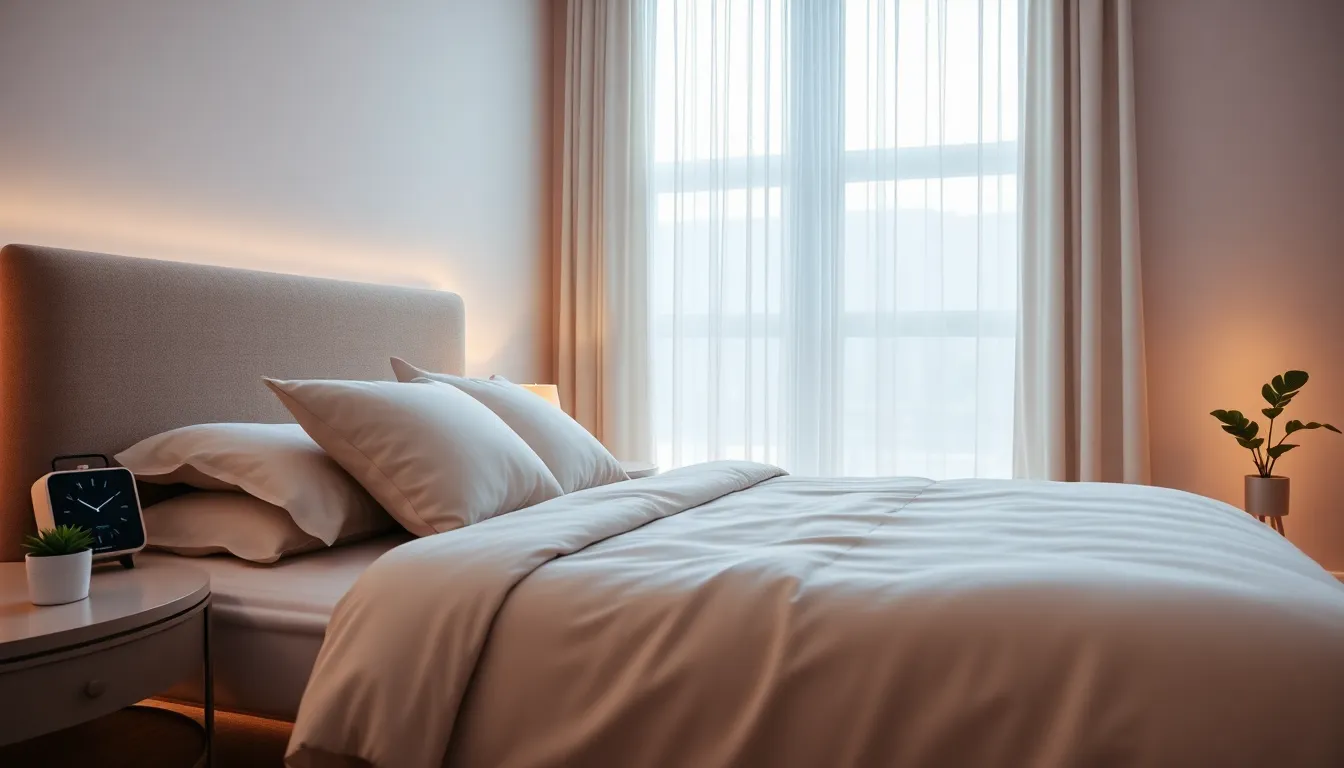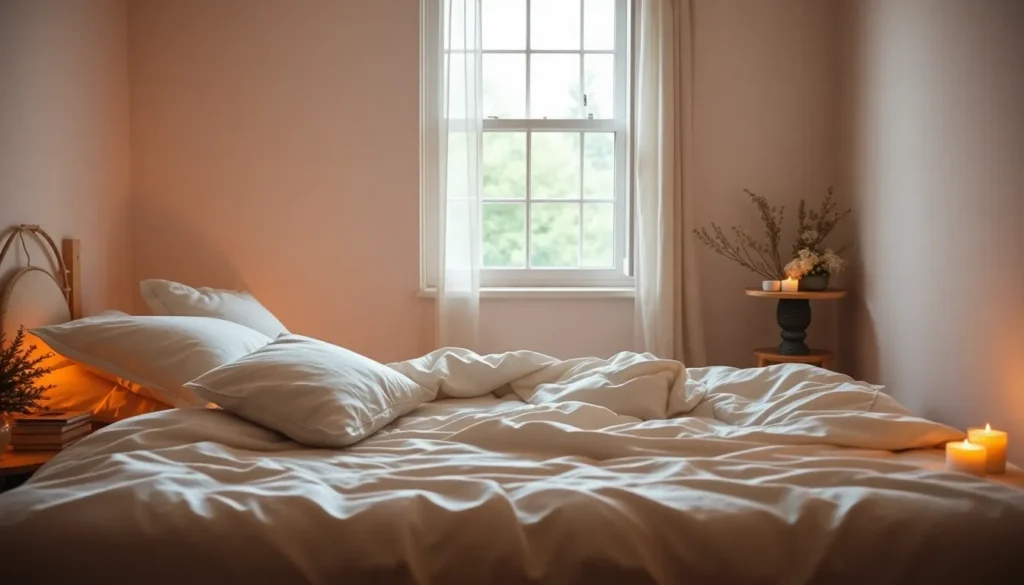In a world buzzing with distractions, finding a restful night is no easy feat. Between late-night emails and binge-worthy series, sleep can often feel like a long-lost friend. But worry not. The benefits of a good night’s sleep extend far beyond just feeling well-rested: it’s pivotal for physical and mental well-being. So grab your favorite pillow and let’s uncover what it truly means to achieve sleep nirvana.
Table of Contents
ToggleUnderstanding the Importance of Sleep

The Science of Sleep Cycles
To truly appreciate the importance of sleep, it’s crucial to understand how sleep cycles work. Sleep isn’t just one unbroken block of time: it’s a series of cycles that your body goes through multiple times a night. Each cycle typically lasts about 90 minutes and consists of various stages: light sleep, deep sleep, and REM (rapid eye movement) sleep. During deep sleep, your body repairs tissues, builds bone and muscle, and strengthens the immune system. REM sleep, on the other hand, is when most dreaming occurs. Each stage plays a vital role in ensuring you wake up refreshed.
Benefits of Quality Sleep
Quality sleep is more than just a matter of feeling good. It has a ripple effect throughout the body. Improved cognitive function, better mood regulation, and enhanced physical performance are just the tip of the iceberg. When individuals commit to getting consistent, restful sleep, they often experience increased productivity and creativity during waking hours. After all, a well-rested mind is a powerhouse of ideas. Besides, long-term benefits include a lower risk of chronic diseases, improved heart health, and heightened life expectancy. With so much at stake, prioritizing sleep should be at the top of everyone’s to-do list.
Common Sleep Disorders and Their Impact
Sleep disorders are all too common and can take a toll on both physical and mental health. Conditions such as insomnia, sleep apnea, and restless leg syndrome can disrupt those precious Z’s. Insomnia, characterized by difficulty falling or staying asleep, not only results in fatigue but also can lead to more serious health issues if left unmanaged. Sleep apnea, which causes breathing interruptions, can result in daytime sleepiness and increased risk of heart problems. These disorders can derail productivity, impact relationships, and diminish quality of life. Awareness and treatment of these issues are essential for anyone trying to prioritize their sleep.
Creating an Ideal Sleep Environment
Tips for Establishing a Healthy Sleep Routine
Creating an ideal sleep environment goes hand-in-hand with establishing a healthy sleep routine. Consistency is key: going to bed and waking up at the same time every day helps regulate the body’s internal clock. It’s also beneficial to adopt relaxing pre-sleep rituals. Whether it’s indulging in a bedtime story, sipping herbal tea, or practicing gentle yoga, these actions signal to the body that it’s time to wind down. A cool, dark, and quiet room can further enhance the quality of sleep.
Relaxation Techniques to Enhance Sleep Quality
To optimize chances of a restful night, relaxation techniques like deep breathing, meditation, or progressive muscle relaxation can effectively calm a racing mind. Engaging in mindfulness can create a mental space conducive to sleep. Aromatherapy, using calming scents like lavender, can also transform a sleep space into a sanctuary. Integrating these techniques into one’s nightly routine can noticeably improve sleep quality.
Diet and Its Role in Sleep Hygiene
The Connection Between Physical Activity and Sleep
Diet plays a pivotal role in sleep hygiene. Consuming a balanced diet rich in whole foods, think fruits, vegetables, lean proteins, and whole grains, can naturally enhance sleep. Physical activity, too, should not be overlooked. Regular exercise is linked to quicker time to fall asleep and deeper sleep. But, timing matters: engaging in vigorous exercise right before bed might be counterproductive. Finding a healthy balance is essential for anyone aiming to enhance their nightly rest.
Avoiding Stimulants and Tech Before Bedtime
Plus to diet, avoiding stimulants like caffeine and nicotine close to bedtime can make a world of difference. Likewise, screens emit blue light, which can interfere with the production of melatonin, the hormone responsible for regulating sleep. Setting boundaries around technology usage before bed is crucial for creating an environment more conducive to sleep.




